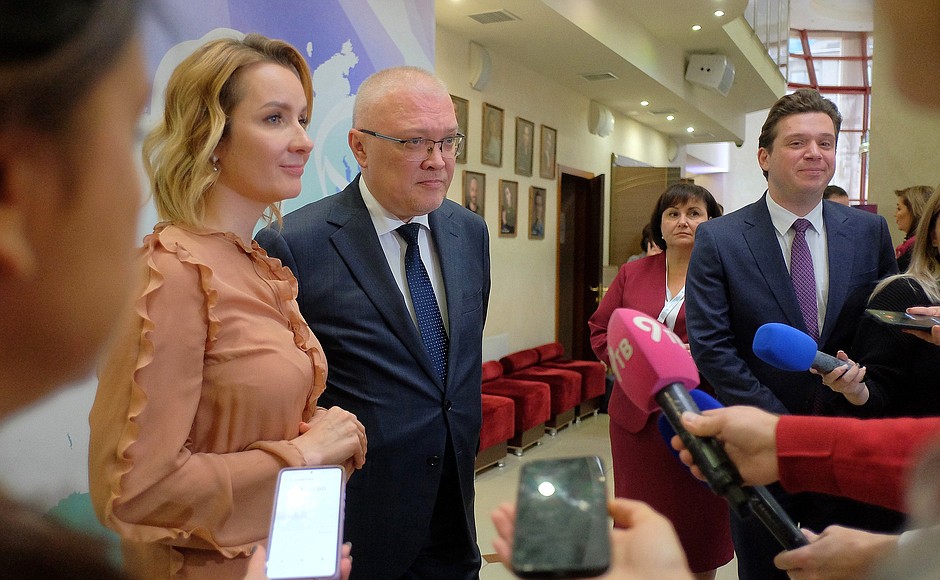The forum was attended by over 300 experts from 63 regions of the country and another 2,500 specialists registered for online participation. For two days, they discussed key issues of preventing child abandonment.
Maria Lvova-Belova said that over the last decade, the number of children in social institutions dropped by 70 percent. Importantly, many of them are social orphans, that is, children with parents. To study this situation and provide methodological support for the regions, this year Ms Lvova-Belova visited 64 children’s institutions, including those for orphans and children left without parental care. She pointed out the shortcomings in compiling plans for individual work at children’s homes, inadequate effort to provide children with family placement and neglecting the need to help parents with alcohol or drug addiction.
Maria Lvova-Belova told the participants about a project on preventing child abandonment among children under 4 years. The project was drafted and is carried out as part of the Commissioner’s “Children in the Family” strategic programme. Its goal is to reduce the number of children under 4 years of age in children’s homes and eventually preserve families and enhance their resilience to challenges.
The Children’s Commissioner also presented the preliminary results of studying families that are registered with prevention system agencies. These studies include over 6,000 families in 13 pilot regions of the project.
To help experts working with families during times of crisis, the Office of the Presidential Commissioner for Children’s Rights has developed an inventory of current measures for helping families with children and has compiled a set of measures to help families with children in difficult situation or at risk. It included 123 points, from rendering urgent care to assistance in improving housing conditions.
Kirov Region Governor Alexander Sokolov emphasised that family welfare was one of the priorities for the regional authorities. He said that according to the region’s socioeconomic development strategy, the authorities would be primarily judged by the lives of the families, their welfare, and the opportunity for development and comfortable living. The children’s infrastructure and measures of support for families with children are built accordingly.
In particular, a new draft law is expected to be submitted to the legislative assembly in January 2024. Under it, every family will receive an additional payment to match the region’s average salary for the birth of their first baby. The Governor believes this measure will substantially improve the demographic situation in the region and help preserve families in general.






